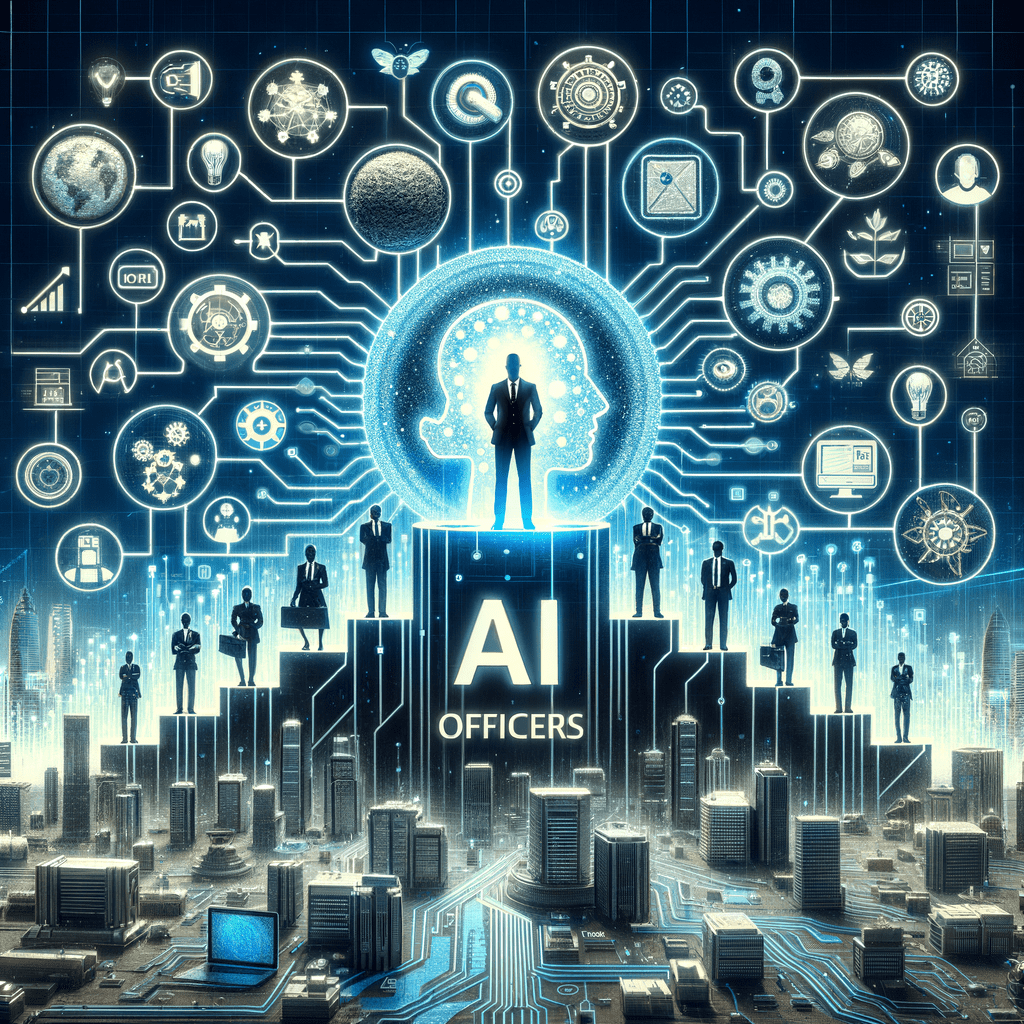You’ve likely seen the headlines. AI is changing business, but how? Where do real people fit in this shift? This exploration into Case studies: Successful AI Officers sheds light on a new role shaping the future of work. We’ll clear up some confusion around using AI and humans together.
What is an AI Officer?
An AI Officer isn’t a robot overlord. It’s a human strategist, a bridge between artificial intelligence and business goals.
They’re responsible for successfully integrating AI across an organization. They understand both technology’s power and its practical uses.
They know how to match AI tools with opportunities that add value, from boosting efficiency to launching new products. This includes cost savings and improved efficiency.
Case Studies: Successful AI Officers
Although the AI officer role is still relatively new, some Case studies: Successful AI Officers are not widely shared yet due to trade secrets or privacy policies. Publicized stories of successfully integrated AI tools hint at areas an AI officer might oversee.
They might make the choices themselves, delegate, or support them in other ways. As AI use in the workplace changes, this specialized job category will grow.
Healthcare: Faster, More Accurate Diagnostics
GE Healthcare partnered with NVIDIA to improve patient care. Successful trials include faster, more reliable ultrasound diagnostics with AI assistance. Watson Health has been transformative for the healthcare sector.
Manufacturing: Predictive Maintenance with Rockwell
Rockwell Automation’s Asset Risk Predictor uses AI to enhance efficiency and accuracy. This AI-powered platform combines information about upkeep and potential problems. This allows for predictive maintenance, before issues arise.
Fintech: Transforming the Banking Sector with JPMorgan Chase
JPMorgan Chase uses AI for compliance. It reviews contracts and manages data with unprecedented speed and quality. This use of AI solutions contributes to their digital transformation.
E-commerce and AI for better sales
Have you ever wondered how sites like Amazon know just what to suggest? They use recommendation engines. Precedence Research data shows how AI is transforming this sector and becoming a large part of their budgets. These AI models predict customer behavior, enabling improved customer satisfaction.
The Skills Gap and How Amazon is Responding to it
AI is only as helpful as the people who use it. Amazon recognized the shortage of qualified professionals. They created “AI Ready” courses to teach 2 million workers by 2025, improving their customer experience through training in areas such as natural language processing.
The Expanding Role of the AI Officer
Many industries are recognizing AI’s transformative potential. They’re using AI tools to improve processes.
Bloomberg Intelligence reported a doubling of AI adoption in businesses between December 2023 and July 2024. This signifies the growth of big data and AI technology within these organizations.
The future of AI Officers promises diverse, creative AI applications. As we learn more about AI, we can create new use cases that improve work-life balance and identify potential for growth.
Quantifying AI-Driven Achievements
With any implementation, success metrics matter. These depend on each business’s needs, products, and current situation.
Metrics like return on investment are useful for judging efficiency and value. Non-financial improvements, like worker well-being, also count as success. Deep learning techniques provide further opportunities for measuring success and optimizing results.
The World Economic Forum found that 62% of employees requested AI access in 2024. This highlights a desire for these technologies in the workplace.
Challenges and Opportunities
Like any innovation, AI implementation has challenges. Getting projects running smoothly takes time.
Early missteps will lead to better solutions. Focus on opportunities.
Gartner predicts that a third of early AI projects will be reworked. This provides valuable experience for future projects and contributes to scaling AI.
FAQs about Case studies: Successful AI Officers
What is an example of AI in a case study?
Examples include Amazon’s efficient supply chain; JPMorgan Chase’s improved risk management and security; and GE Healthcare’s faster diagnostics and treatments. This is supply chain optimization at its finest.
Additional information exists on choosing AI software and learning from successful case studies. Learning algorithms analyze these case studies to identify patterns and best practices.
Who is the most successful AI engineer?
There’s no single answer. Success depends on factors like academic recognition, patents, published research, applications created, and successful projects. Machine learning algorithms and deep learning have made significant impacts across industries, enabling innovations like autonomous vehicles and mobile app development.
Experts like Demis Hassabis, Fei-Fei Li, and Ian Goodfellow are known for their accomplishments in AI and machine learning.
Which AI is best for case studies?
The “best” AI depends on the specific problem. Consider company priorities and existing software before investing in and integrating new AI tools. Generative AI and other AI solutions offer unique capabilities depending on the needs of the case study. Machine learning algorithms analyze data to identify the optimal approach.
Several resources discuss success with specific AI, which can guide your decision-making.
What is the biggest success of AI?
Defining AI’s “biggest” success depends on your perspective. From medical diagnostics and enhanced agricultural practices to improved transportation safety, AI has had a transformative impact.
Self-driving cars and pilot-assist automation, powered by AI systems, have the potential to save lives. AI-powered recommendation systems in online shopping also drive revenue growth. AI’s potential to optimize manufacturing processes is a significant achievement. These applications utilize learning algorithms to enhance and improve decision making and processing.
Conclusion
Case studies of successful AI Officers show how human expertise and AI can reshape business. AI augments human workers, enabling them to handle more complex tasks by taking care of simpler ones. Learning algorithms allow businesses to adapt faster.
Using best practices and relevant templates is key to avoiding common mistakes. Strategic AI implementation offers enormous potential for future gains, job growth, and transforming industries like healthcare. This transformation encompasses broader global reach, including cost reductions through optimized inventory management.
Faster development, manufacturing, and shipping with AI-powered predictions helps businesses stay ahead, innovate, and meet customer demands. These enhancements lead to increased customer satisfaction. These successes show AI’s value across numerous fields, highlighting it’s future impact in today’s ever evolving landscape.






